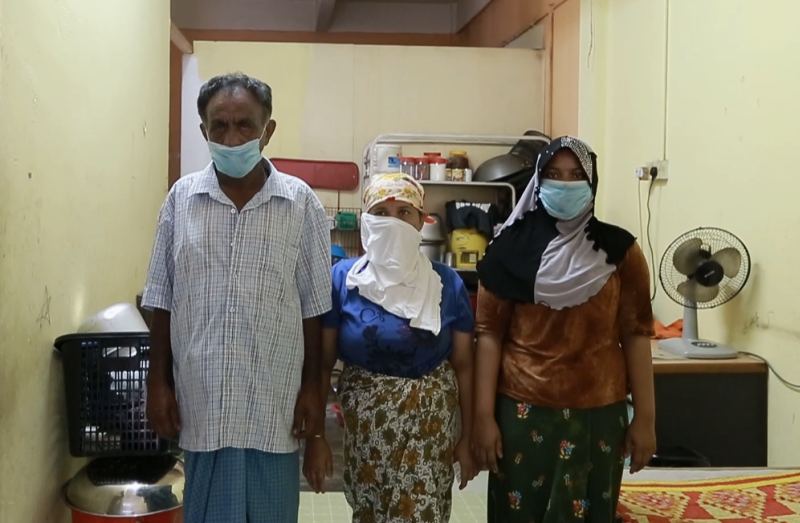Covid-19: Once just able to get by, forgotten Rohingya workers in KL now in dire straits (VIDEO)

KUALA LUMPUR, April 6 — In the decades the Rohingya community has lived in Malaysia, they have largely survived day to day.
Their able-bodied men and women are not allowed to work legally. Trapped in abject poverty, many are forced to labour in the shadows as garbage collectors, waiters or helpers for petty traders to earn as little as RM10 a day.
The informal nature of their employment also means these Rohingya workers are susceptible to exploitation. Many are paid daily and far below the market rate, and none receive medical benefits.
So when the Pakatan Harapan administration said it may lift the work ban for refugees last December, it gave the Rohingya and other displaced communities here a ray of hope.
But that hope was short-lived. PH was deposed and the policy is now in limbo.
And with the nation now battling a pandemic of unprecedented scale, the Rohingyas are faced with a different enemy — starvation.
Rohingya workers are among the hardest hit by the strict four-week long movement control order (MCO) the government enforced starting March 18 in a bid to contain Covid-19.
Nearly all of them have been left jobless as markets and small businesses, paralysed by the lockdown, shuttered. Business groups estimate that up to half of small and medium enterprises could fold by mid-year if they receive no government help.
And while the federal government did unveil a RM250 billion stimulus package recently, not a single sen will go into helping these communities. As such, the Rohingyas are again forced to beg and rely on public sympathy to survive.
For most of the 7,000 Rohingya households living in the dense neighbourhood of Desa Pelangi, Selayang, having two meals a day is a luxury.
If food was once bought with the income earned from work at nearby factories and wholesale markets, now it comes from meagre donations.
“Just white rice,” said Halayda Isuf Muhamad, a daughter in a family of four who lost her job as a waitress, as the restaurant that paid her is now temporarily closed due to the MCO.
“No fish or other meat whatsoever. We are struggling just to eat.”
Her father, Muhamad Yusuf Abdul Rahman, despite his old age, once had an income from collecting boxes and bottles to sell. On a good day he could earn RM30. That money would have been saved to pay rent for a tiny flat with two makeshift rooms and a small kitchen.
“Rent is RM650,” he told Malay Mail.
“But I haven’t been working for three weeks (because I am to be indoors) so my rent... how?”
On social media, rights groups have drawn attention to the government’s glaring exclusion of refugees and migrant workers from the stimulus package, dubbed Prihatin, Malay for “Care”, as the clearest sign of public policy failure.
Up to RM10 billion has been allocated as cash assistance and wage subsidies but only for local workers facing retrenchment. Migrant workers, along with their refugee counterparts, provide a crucial workforce for key sectors like agriculture, construction, sanitation and frontline services.
Human Aid Selangor, a humanitarian organisation with years of experience in helping the Rohingya community within the Selayang area, said they have yet to receive any help be it from the state or federal government.
“I don’t want to criticise them but we hope they can listen to us and help,” said Rafik Shah, the group’s chief co-ordinator.
Related Articles Pulih Covid-19, MP Bandar Kuching bantu penduduk terjejas PKP Spain to widen coronavirus tests as hopes rise for easing lockdown Malaysia again hits record Covid-19 recoveries, death tally now 62 with one new fatality



